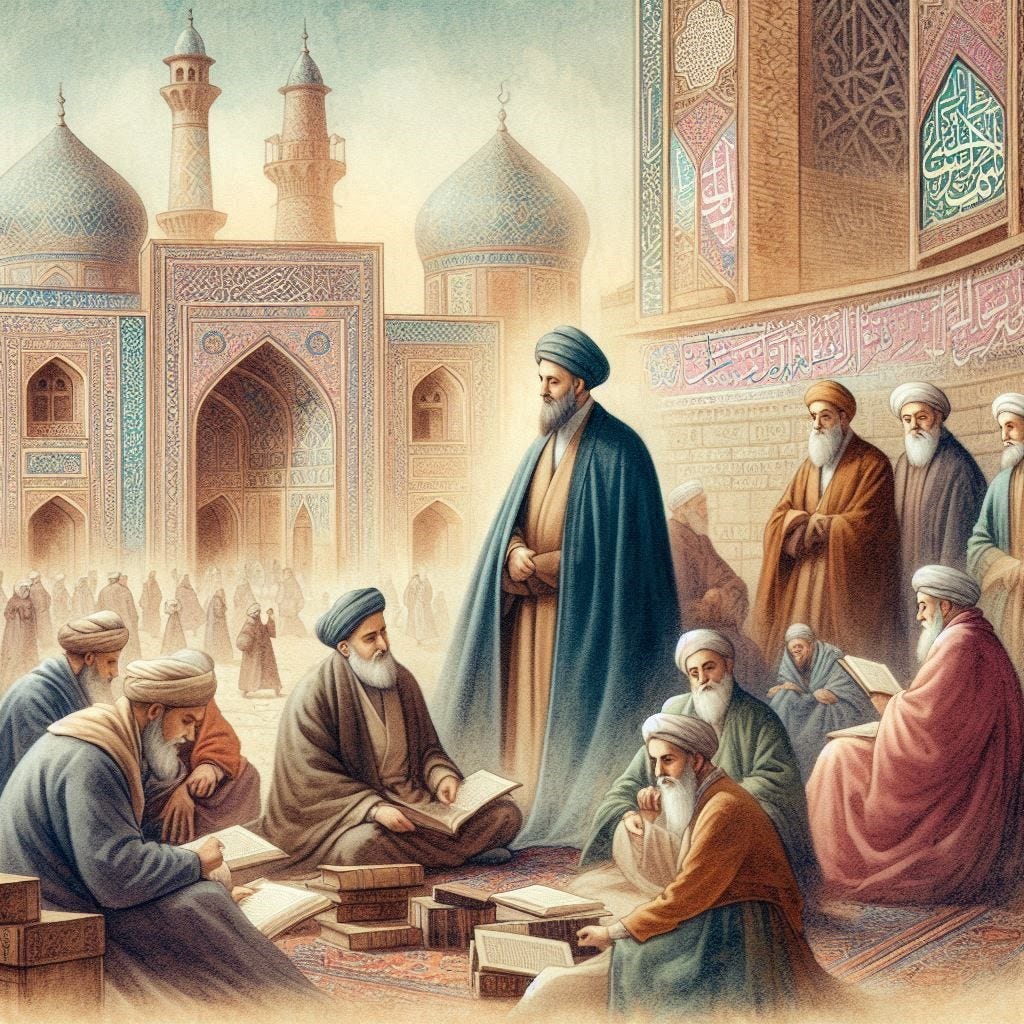Ibn al-Fahd al-Hilli: A Detailed Biography
Scholar, Author, and Influencer in Islamic Thought
Introduction
Ibn al-Fahd al-Hilli was a distinguished Islamic scholar, best known for his seminal work, "Uddat ad-Daee wa Najah as-Saee" (عدة الداعي ونجاح الساعي). His contributions to Islamic scholarship during the medieval period were monumental, securing his place as a key intellectual and religious figure. This biography explores his life, works, influences, and enduring legacy within the historical context of his time.
Early Life
Born in the city of Hillah—a thriving center of Islamic learning in medieval Iraq—Ibn al-Fahd al-Hilli grew up in an environment rich with scholarly activity. Hillah, founded in 1101 CE, was a hub for theologians, jurists, and philosophers, fostering a culture of intellectual rigor. From an early age, Ibn al-Fahd displayed a keen interest in religious studies, particularly Islamic jurisprudence (fiqh) and theology (kalam).
Education and Influences
Ibn al-Fahd studied under some of the most prominent scholars of his time, including Al-Allama al-Hilli and Shaheed Awwal (the First Martyr). Their teachings profoundly shaped his intellectual approach, particularly in jurisprudence and theological reasoning. The influence of Shaheed Awwal is evident in Ibn al-Fahd’s meticulous attention to legal details and his structured methodology in religious rulings.
This period was marked by the aftermath of the Mongol invasions, which devastated many Islamic centers of learning. However, the subsequent Ilkhanate conversion to Islam led to a revival of scholarship, creating opportunities for thinkers like Ibn al-Fahd to contribute to the rebuilding of Islamic intellectual traditions.
Major Works
Ibn al-Fahd’s literary output was vast, covering jurisprudence, theology, and spirituality. His most famous work, "Uddat ad-Daee wa Najah as-Saee" ("The Equipment of the Supplicant and the Success of the Seeker"), remains a cornerstone in the study of Islamic supplication (du'a). The book synthesizes Qur'anic teachings, Hadith, and insights from earlier scholars, offering a comprehensive guide to spiritual devotion.
Among his other significant contributions:
Al-Muhadhdhab fi Fiqh al-Imamiyyah (المهذب في فقه الامامية): A jurisprudential work influenced by Al-Allama al-Hilli, focusing on Shia legal theory.
Al-Uyun wa al-Hadaiq fi Ahkam al-Shara'i' (العيون والحدائق في أحكام الشرائع): A detailed exploration of Islamic law, reflecting Shaheed Awwal’s rigorous approach to jurisprudence.
Risalah fi al-Tawhid (رسالة في التوحيد): A theological treatise on monotheism, engaging with philosophical debates of the time.
These works demonstrate Ibn al-Fahd’s versatility as a scholar, bridging jurisprudence, theology, and spirituality.
Contributions to Islamic Scholarship
Ibn al-Fahd’s impact on Islamic thought was multifaceted:
Jurisprudence: His legal writings refined Shia fiqh, providing structured interpretations that influenced later scholars.
Theology: His works on tawhid (monotheism) contributed to theological discourse, blending rational inquiry with scriptural foundations.
Spirituality: Uddat ad-Daee emphasized the importance of supplication, making it a key reference for Muslims seeking spiritual growth.
His scholarship helped preserve and advance Islamic knowledge during a turbulent historical period.
Historical Context
The Mongol invasions (13th–14th centuries) had disrupted Islamic civilization, destroying libraries and centers of learning. However, the subsequent Ilkhanate rule in Persia saw a revival of Islamic scholarship as the Mongols embraced Islam. Ibn al-Fahd’s works emerged in this era of reconstruction, reinforcing religious scholarship amid political and social change.
Legacy
Ibn al-Fahd al-Hilli’s influence persists through his writings, which remain essential references in Islamic studies. His jurisprudential works continue to shape Shia legal thought, while Uddat ad-Daee remains a spiritual guide for Muslims worldwide. By bridging theology, law, and devotion, he secured his place as a pivotal figure in Islamic intellectual history.
Conclusion
Ibn al-Fahd al-Hilli was a luminary whose scholarship transcended his era. His contributions to jurisprudence, theology, and spirituality not only preserved Islamic knowledge during a time of upheaval but also laid foundations for future generations. Today, his works endure as testaments to his profound intellect and enduring legacy in Islamic thought.


